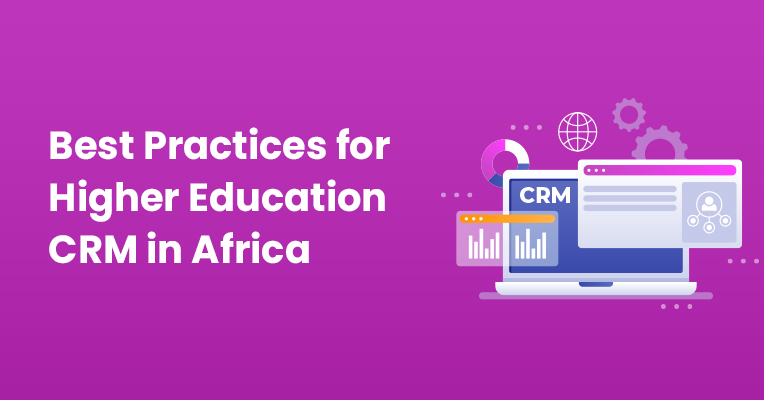CRM systems have revolutionized the landscape of higher education institutions, becoming an indispensable tool for efficient student interaction management, streamlined administrative processes, enhanced recruitment efforts, and overall improved student experiences. In light of these transformative benefits, this blog post is dedicated to exploring the best practices in implementing and harnessing higher education CRM systems within the African context. By focusing on the unique challenges and opportunities faced by institutions in the region, we aim to shed light on the untapped potential of CRM technology in shaping the future of education in Africa.
Understanding the African Higher Education Landscape
Before implementing an Education CRM, it is crucial to understand the diverse higher education landscape in Africa. Africa’s educational ecosystem comprises many institutions, including universities, colleges, and vocational training centers. It is important to consider the specific needs and requirements of each institution type to tailor the CRM accordingly.
Lead Generation and Student Recruitment
Using a Higher Education CRM, institutions have the opportunity to enhance their recruitment procedures through the automation of lead generation, inquiry management, and targeted marketing campaigns. By utilizing the capabilities of Higher Education CRM, institutions can efficiently identify and cultivate prospective students, resulting in a more robust and diverse pool of high-quality applicants.
Centralizing Student Data Management
A key aspect of CRM implementation is centralizing student data management. Institutions can create a comprehensive student profile by integrating various data sources such as admissions, enrolment, academic records, and student support services. This centralized approach enables efficient communication, personalized interactions, and effective decision-making based on real-time data.
Automation for Streamlined Processes
Automation plays a vital role in optimizing administrative processes. Implementing automation features within the Education CRM helps reduce manual efforts and enhances operational efficiency. Methods such as application submission, document verification, fee payment, and registration can be automated, freeing up valuable resources and reducing turnaround times.
Personalized Communication and Engagement
A key advantage of CRM systems is the ability to personalize communication with prospective and current students. Institutions can leverage data analytics and segmentation tools to tailor communication based on student’s interests, preferences, and engagement history. Personalized communication enhances student engagement, improves recruitment outcomes, and fosters a sense of belonging within the institution.
Analytics and Reporting for Data-driven Decision-making
Data analytics and reporting capabilities within Education CRM systems provide valuable insights for decision-making. Institutions can track recruitment metrics, analyze campaign performance, monitor student engagement, and identify trends. Moreover, insights enable institutions to access crucial data in real-time and continuously improve recruitment strategies.
Mobile Accessibility and User Experience
Given the increasing mobile penetration in Africa, it is crucial for Education CRM to be mobile-friendly and provide a seamless user experience across devices. A responsive design and intuitive interface ensure your teams can access and interact using the Education CRM system anytime, anywhere, fostering engagement, and collaboration.
Implementing an effective CRM system is a game-changer for African higher education institutions. Accordingly, it empowers institutions to enhance student recruitment, streamline administrative processes, and improve the overall student experience. By leveraging personalized communication, automation, analytics, and mobile accessibility, institutions can stay ahead in an increasingly competitive landscape.
Meritto’s Education CRM
Meritto’s Education CRM offers a comprehensive solution tailored to the specific needs of higher education institutions in Africa. With its robust features, including centralized data management, automation, personalized communication, analytics, and mobile accessibility, it is an ideal choice for institutions seeking to optimize their CRM capabilities.




